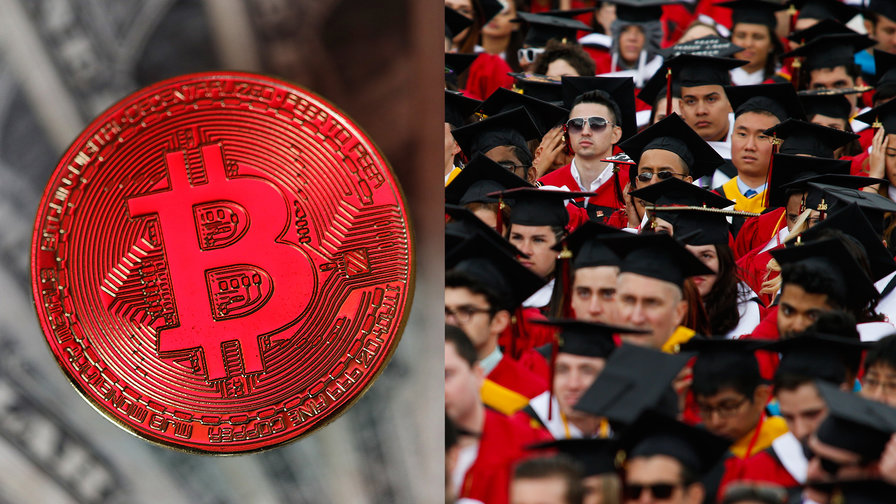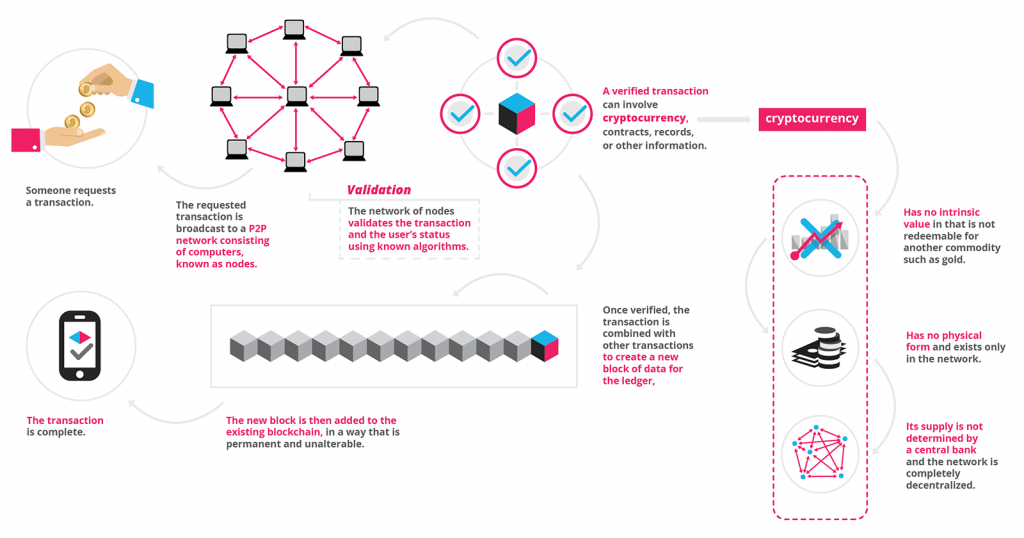
A fascinating report highlights another potentially game-changing use for blockchain, the technology propelling cryptocurrencies like Bitcoin and Etherium that have taken the stock market by storm. Can blockchain transform education like it has the financial sector?
The report comes from the European Commission’s Joint Research Centre (JRC) – a science and knowledge service that has scientists conduct research to advise EU policy-makers. The JRC looked at case studies carried out at European Universities and came up with specific ways blockchain can impact education, a process the researchers themselves admit is in its “infancy”.
How does blockchain work? Like authors Don and Alex Tapscott from the Blockchain Research Institute explain, “the blockchain is an incorruptible digital ledger of economic transactions that can be programmed to record not just financial transactions but virtually everything of value.”
This revolutionary distributed ledger technology for data management uses networks of nodes, with all data not stored in any single location but instead spread out between millions of computers at the same time. Basically, everyone in a community has a copy of the information and all community members validate updates collectively. The technology can create a self-checking network that is unprecedented in its transparency and cannot be corrupted. Imagine a world where there are no transaction errors and a highest degree of accountability exists. That utopia is the holy grail of blockchain.
Check out this helpful graphic from BlockGeeks for more on how blockchain works:

So how can you use this for something other than the hyper-fashionable cryptocurrency market? Here are the 4 ways blockchain can remake education, according to the JRC report:
1) Blockchain can help eliminate paper. Yes, those endless tree-killing boxes of files can go. Blockchain can securely and permanently store all records, issue reliable certificates and awards, transfer credits and keep track of learning achievements across a whole lifetime.
2) No need for a central authority to validate certificates. No need for the Ministry of Information. Your college won’t have to send you a copy of your transcript and prove to anyone you have your degree. No more fake doctors, with all diplomas been publicly available and verifiable.
Intellectual property management would also be simplified – the blockchain will track first publications and citations without requiring some supervising authority to do the heavy lifting. This can also help the author of the cited work to get paid automatically.
3) Educational institutions will save money. Since the people participating in the blockchain all have ownership and control over their own data, schools and colleges would “significantly reduce” the cost of data management as well as legal costs arising from liability issues.
4) Blockchain-based cryptocurrencies will simplify payment systems in institutions. Think not waiting for your financial aid to be approved and transferred – it could happen instantly as you apply. And custom cryptocurrencies may be created to fund grants and vouchers.
To advance the cause of applying blockchain tech in education, the report recommends more investigation into the matter for specific cases, setting up an EU-wide label for “open” educational records, the formation of an expert committee and agreeing upon standards for how the technology will be employed.
